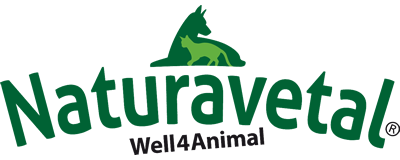
Important minerals
A healthy diet for our pets includes carbohydrates, fats and proteins, but also certain ingredients that must be added to the body in tiny amounts – such as the essential minerals. These essential minerals are important for a healthy balanced diet. Minerals are essential for building bones, teeth, hormones and blood cells. They maintain tissue tension, transmit stimuli and activate enzymes. Minerals are subdivided according to their tasks and the amount of matter in the body. According to tasks, one differentiates between construction and the other is for regulating materials. The building materials include calcium, phosphorus and magnesium. Regulators include iodine, sodium, potassium, iron and chlorine. Some elements have both construction and control properties, such as phosphorus, which is involved in both the construction of teeth and bones, but at the same time also has a regulatory effect on the acid-base balance. A further distinction of the minerals results in the concentration. They are divided into essential and trace elements. The essential elements include calcium, chlorine, potassium, magnesium, sodium and phosphorus; the trace elements include cobalt, iron, fluorine, iodine, copper, manganese, molybdenum, nickel, selenium, vanadium, zinc and others. In nature, there are over ninety basic substances, of which about fifty could be detected in mammals. The effect is known for about twenty minerals.
Many scientific studies have shown what an organism needs in terms of vitamins, minerals and trace elements. These important substances are present in sufficient quantities in our natural foods and should complement each other optimally. Natural vitamins and minerals are absorbed by the body exactly as it is needed. In contrast to artificial minerals and synthetic vitamins, the natural minerals are not stored in the body and therefore do not become a burden!
In a balanced and healthy diet as with the premium diet our animals need no artificial additives and synthetic supplements, as with the premium diet of Naturavetal.
Quantity elements
As already described above, minerals can also be divided according to their concentration. Thus they are divided into quantity and trace elements. The quantity elements include calcium, phosphorus, magnesium, sodium, potassium and chlorine.
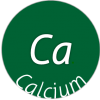
Calcium
Found in: grains and dairy products
is effective in supporting heart activity, building healthy bones and teeth, and activating the muscles. The bones contain almost all the calcium in the organism. A small amount is in the blood, this has great importance for nerve and muscle functions as well as for the ability to clot. For a good calcium / phosphorus supply in the body it is important that the calcium / phosphorus ratio is also reflected in the food intake. This should be 1.5 to 1.
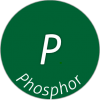
Phosphor
Found in: meat, sausage, milk and dairy products, vegetables, grains and legumes
In addition to muscle and brain activity it supports bone and tooth structure and is responsible for the entire metabolism and acid-base balance. Phosphorus is also part of many enzymes and it is also involved as a high-energy compound in cell energy release and rebuilding (ATP, ADP). For a good calcium / phosphorus supply in the body it is important that the calcium / phosphorus ratio is also reflected in the food intake. This should be 1.5 to 1.

Magnesium
Found in: mainly in green leafy vegetables, dairy products and meat, unpeeled rice and oats
Magnesium controls muscle and nerve functions. It is important for bone and tooth structure as well as for enzyme activation (it is involved in the action of around 300 enzymes).
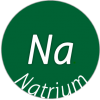
Sodium
Found in: salt, dairy products, milk and meat
It is necessary for muscle and nerve stimulation, water balance, acid-base balance and to regulate osmotic pressure.
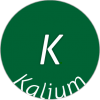
Potassium
Found in: potatoes, vegetables, fruits and grain products, especially in bananas
It is important for muscle and nerve stimulation, digestion and acid-base balance. Together with sodium, calcium and chlorine, it affects the heart muscle activity.
Trace elements
Since their concentration in the body is rather low in relation to the bulk elements, these elements are called trace elements. Trace elements include iron, zinc, copper, manganese, iodine and sulphur.
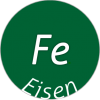
Iron
Found in: caviar, meat, beans and peas
Iron is important for the transport of oxygen and electrons as well as necessary for energy conversion. It is indispensable for the formation of red blood cells. Deficiency symptoms include anemia, especially in lactation, increased susceptibility to infections and low weight gain.
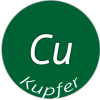
Copper
Found in: shellfish and cocoa
It controls the keratin structure of hair and wool. It is important for nervous system and fat metabolism and has an important function in the formation of blood and pigment. Without copper, iron metabolism and cellular respiration cannot work smoothly. Deficiency symptoms: Low iron absorption, liver damage, skeletal and vascular damage (X- and O-leg position), ataxia and anemia. Changes on the skin and hair as well as graying of dark pigmented hair.

Zinc
Found in: eggs and oatmeal
Zinc is a vital element found in over 200 enzymes. It is indispensable for the conversion of vitamin A and the polyunsaturated fatty acids. In addition, it has great importance for the skin, nails, mucous membrane, pancreas and many other organs. Zinc is also part of insulin. Deficiency symptoms include fur and hair damage, skeletal damage, low testicular development, weakening of the immune system as well as diseased skin thickening and hair loss, delayed wound healing and general fatigue.

Manganese
Found in: oatmeal and green leafy vegetables
Manganese has its importance for bone growth and supports the fat and carbohydrate metabolism. It is also important for cell function / structure and immune function. Deficiency symptoms include the reduction in concentration, nervous disorders, disturbed skeletal structure, thickened joints and lack of movement as well as disturbed fertility and miscarriage.
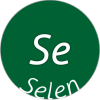
Selenium
Found in: fish and meat
Selenium is important for protecting cells from oxidative destruction. It helps with fatty acid metabolism and has an important immune function.
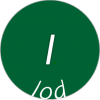
Iod
Found in meat and fish, milk and dairy products, eggs, cereal products such as oats, maize or millet, vegetables such as broccoli, spinach or carrots and fruits such as bananas or apples.
Iodine is needed for the formation of thyroid hormone and also for their normal function. It is essential for cell differentiation, growth and development in growing animals. It also regulates metabolism in adult animals.






